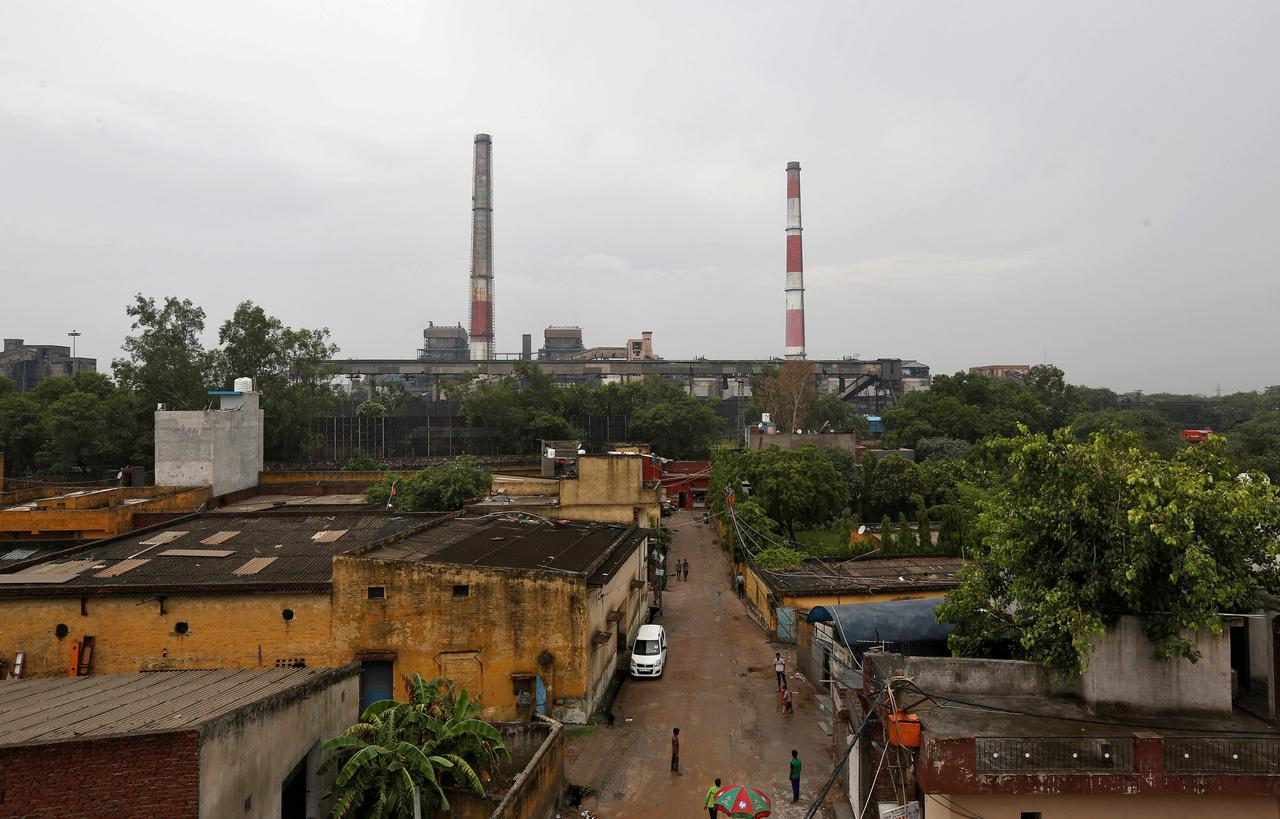
Featured image: Chimneys of a coal-fired power plant are pictured in New Delhi, July 20, 2017. Photo: Reuters/Adnan Abidi/File Photo
New Delhi: The Centre is planning to do away with the mandatory requirement of washing of coal before it is transported to thermal power stations. The Ministry of Environment, Forest and Climate Change (MoEFCC), in a discussion note, suggested that coal washing should be done away with, as it does not bring down the ash content in coal.
In 2014, as part of its climate change commitments, the government had made coal washing mandatory for supply to all thermal units beyond 500 kms from the coal mine. This was done in line with India’s stand in climate change negotiations – not to reduce coal consumption and rather focus on emission control.
MoEFCC, in its guidelines issued the same year, said, “Power stations located between 500-750, 750-1000 km would be supplied coal with ash content not exceeding 34 per cent on quarterly average basis from January 01, 2016.” It, therefore, directed the coal companies to supply washed/blended or beneficiated coal.
Also read: India’s Coal Power Plants Need Rs 86,135 Crore to Comply With Emission Standards: Study
The environment ministry now in its latest note has said, “In the overall scheme of coal, mine, washery and power plant, the extent of ash content in mined coal remains the same”. Business Standard has reviewed the note. According to industry calculations, coal washing improves the quality of coal by reducing the ash content to 33 per cent from an earlier 40-45 on an average for Indian coal.
The note has been prepared in consultation with the ministry of coal, power and NITI Aayog. Agreeing that coal washing does not help reduce emissions, the power ministry said that “coal rejects from washery find their way into the market for use by industries and create pollution”. Coal ministry said washing of coal is unable to meet its intended objective as “it merely localises the pollution around coal mines which otherwise would have been distributed over larger areas”.
The Union power ministry has also pointed out that the process of coal washing is cumbersome and costly. It also said “washing leads to reduction in the calorific value of the coal as well”.
 The power ministry has instead batted for pollution control technologies at power generation units. Under the guidelines of the Central Pollution Control Board, plants with close to 50 gigawatt of thermal power capacity need to install emission control systems. As most of the privately owned generating stations missed the deadline of 2017, the new deadline is between 2019-2022.
The power ministry has instead batted for pollution control technologies at power generation units. Under the guidelines of the Central Pollution Control Board, plants with close to 50 gigawatt of thermal power capacity need to install emission control systems. As most of the privately owned generating stations missed the deadline of 2017, the new deadline is between 2019-2022.
Senior power sector executives said that emission control technologies, such as FGD, installed by power stations and coal washing are not the same and have different purposes. “Most thermal stations do not get washed coal despite being made to pay a higher price. Also, FGD technology is costlier than a coal washery,” said the executive.
The ministry of coal in the note, however, claimed Coal India and its subsidiaries have improved supply considerably in terms of size, quality and extraneous material over the years. This, it said, would considerably reduce wear and tear of all related equipment.
A senior executive at NTPC, India’s largest power generator, said their units get coal with ash content ranging from 30-40 per cent from Coal India.
In its comment to the note, the coal ministry also said it would be beneficial to use raw coal instead of washed coal. “With the use of supercritical technology in power plants, technological improvement to arrest emissions, unwashed coal can be used efficiently and economically using washed coal which makes power generation costlier,” said the ministry of coal.
The MoEFFC has asked NITI Aayog and TERI to jointly prepare a policy report on the proposal.
In 2017, Coal India’s ‘Vision 2030’ report which analysed long-term trends in the coal sector, said it will undertake coal washing capacity under public-private partnership (PPP) mode. However, of the 18 coal washeries planned by Coal India under PPP only two have come up after a decade of launching tenders for the same.
By arrangement with Business Standard.

